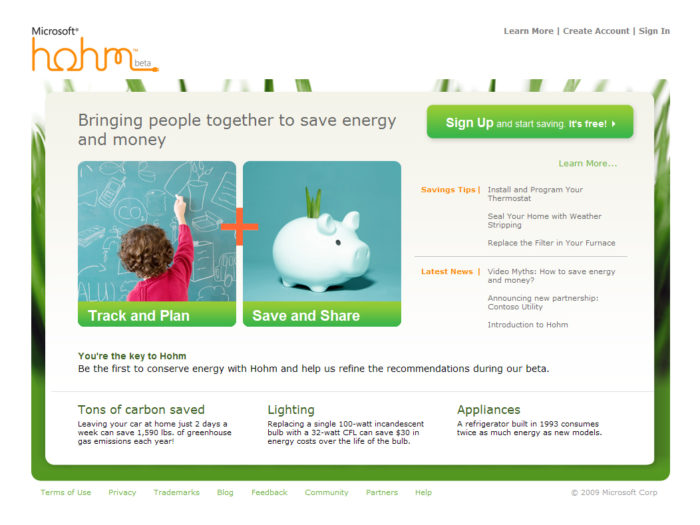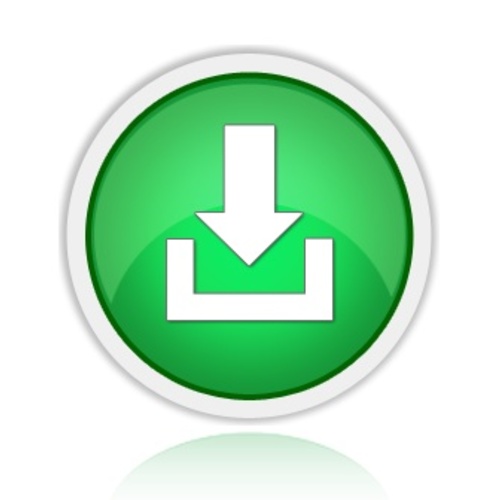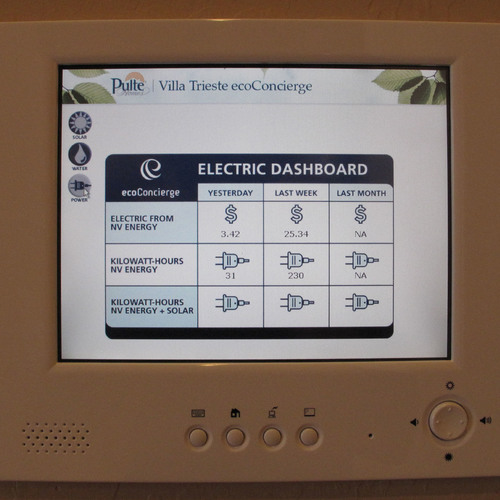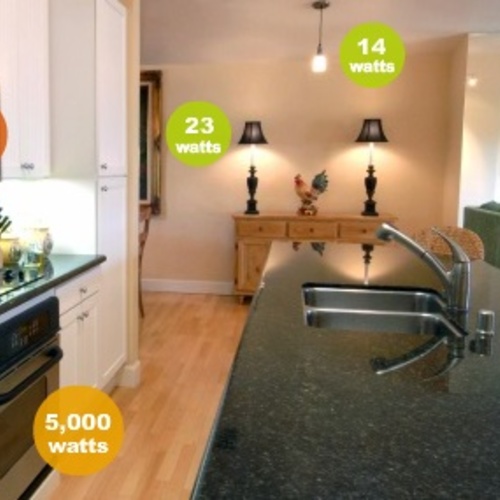
Image Credit: Microsoft
Google and Microsoft each have developed online tools designed to help consumers both analyze and trim their residential energy consumption.
Google’s service, PowerMeter, has been under testing for some time but, as a recent CNET News.com story points out, is being rolled out gradually. Google has forged partnerships with utilities and meter specialist Itron, which will help supply PowerMeter software users with the smart-plug gear and data they need to monitor their energy usage in detail. Right now, the population of PowerMeter users is small, although Google engineer said in a blog posted last month that the company, which is seeking more alliances with smart-meter vendors and utilities, will expand its rollout later this year.
Google estimates that even a basic analysis of usage patterns and appliance performance will help customers reduce electricity use 5% to 15%.
Another CNET story notes that a competing online service, Microsoft Hohm, will be available for free to consumers (the beta version will launch soon) and work with or without any extra gear.
Craig Mundie, Microsoft’s chief research and strategy officer, told CNET that Hohm, which also will be predicated in part on partnerships with utilities, works by asking people questions about their home and energy use. The more data consumers feed the service, the more detailed Hohm’s recommendations will be.
Of course, while it never hurts to have a couple more diagnostic tools on hand to help increase energy efficiency, it’s not yet clear consumers will be motivated enough to extract benefits from these or any other smart-grid-monitoring product or service that requires significant, hands-on participation.
As Gartner analyst Martin Reynolds told CNET, apathy can be a bigger obstacle than ignorance when it comes to cutting energy consumption.
Weekly Newsletter
Get building science and energy efficiency advice, plus special offers, in your inbox.















One Comment
nega watts
I'm hoping that these services will also provide for uploading of solar output data. I'm ready to write the software the transmit the data from my SMA inverters.
Log in or create an account to post a comment.
Sign up Log in